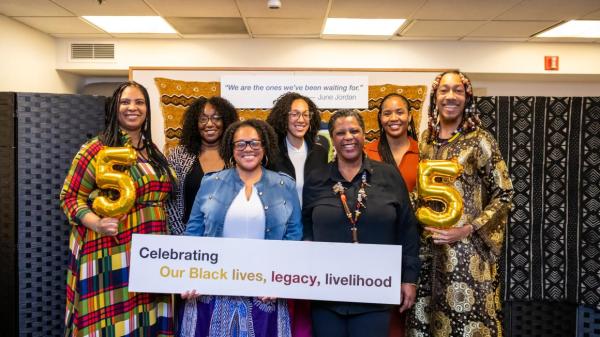More Exercise, More Protein May Narrow the Gender Gap, Researchers Say
Women awaiting liver transplants in the United States are known to be about one-third more likely than men to become too ill to undergo surgery or die before receiving a liver. Now a study headed by UC San Francisco and Columbia University highlights the role that frailty plays in this gender gap.
The study followed 1,405 patients with cirrhosis, of whom 41 percent were women, awaiting liver transplantation at nine transplant centers in the United States. The men, whose ages ranged from 49 to 63, were more likely to have chronic hepatitis C and alcoholic liver disease (27 percent versus 22, and 33 percent versus 19 percent). The women, whose ages ranged from 50 to 63, were more likely to have non-alcoholic fatty liver disease and autoimmune cholestatic liver disease (23 percent versus 16 percent, and 23 percent versus 9 percent), according to the study published in JAMA Surgery on Dec. 30, 2020.
The researchers, led by first author Jennifer Lai, MD, MBA, a general and transplant hepatologist at the UCSF Department of Medicine, found that both genders had similar levels of liver disease severity, but fewer women had high blood pressure and coronary artery disease. Despite this, they were significantly frailer according to testing using the Liver Frailty Index (LFI), which showed weaker gender-adjusted grip, worse balance and that they were slower to stand up from a sitting position.
“This is the first time that frailty has been identified and quantified as a risk factor among women with cirrhosis who are waiting for liver transplants,” said Lai. “The importance of this finding is that this gender gap can potentially be mitigated through early interventions as basic as providing adequate caloric and protein intake and engaging in regular exercise. Clinicians can advise women on diet and exercise interventions that build strength.” These steps may be helpful for women undergoing other organ transplants, since frailty may play a role there too, the authors noted.
While the causes of frailty were not explored, Lai said that it is generally attributed to physical inactivity, chronic liver failure and poor diet.
Over the course of the study, the women had a 36 percent higher risk of waitlist mortality, which was defined as death or delisting for being too sick for transplantation. After adjusting for LFI scores and other variables, the researchers concluded that frailty accounted for 13 percent of the gender gap in waitlist mortality. While the study does not address the other factors that make up for the gender disparity, the authors note differences in kidney function and the higher percentage of male donors, who may be poor matches for women given their smaller stature.
The greatest significance of the study, said Lai, is at the level of the population of liver transplant patients in the United States.
“The waitlist mortality gender gap has persisted for 15 years across the entire U.S. liver transplant system and will continue to persist if it is not recognized,” she said. Fortunately, “now that it has been recognized, it can be addressed.”
Authors: Senior author is Elizabeth C Verna, MD, MSc, of Center for Liver Disease and Transplantation at Columbia University Irving Medical Center. Co-authors are Jennifer Dodge, MPH, and Charles E. McCulloch, PhD, of UCSF; Daniel R. Ganger, MD, of Northwestern Medicine; Michael L. Volk, MD, MSc, of Loma Linda University Health; Michael A. Dunn, MD, and Andres Duarte-Rojo, MD, of the Thomas A. Starzl Transplantation Institute and the University of Pittsburgh; Matthew R. Kappus, MD, of the Duke University School of Medicine; Robert S. Rahimi, MD, of Baylor University Medical Center; Daniela P. Ladner, MD, of Northwestern Medicine and Northwestern University; Brian Boyarsky, MD, and Dorry L. Segev, MD, PhD, of Johns Hopkins School of Medicine; Mara McAdams-DeMarco, PhD, of Johns Hopkins Bloomberg School of Public Health.
Funding: Lai, Dodge, Boyarsky, McCulloch and Segev are supported by the National Institutes of Health.
Disclosures: The authors have no conflicts of interest to disclose.
The University of California, San Francisco (UCSF) is exclusively focused on the health sciences and is dedicated to promoting health worldwide through advanced biomedical research, graduate-level education in the life sciences and health professions, and excellence in patient care. UCSF Health, which serves as UCSF’s primary academic medical center, includes top-ranked specialty hospitals and other clinical programs, and has affiliations throughout the Bay Area.




